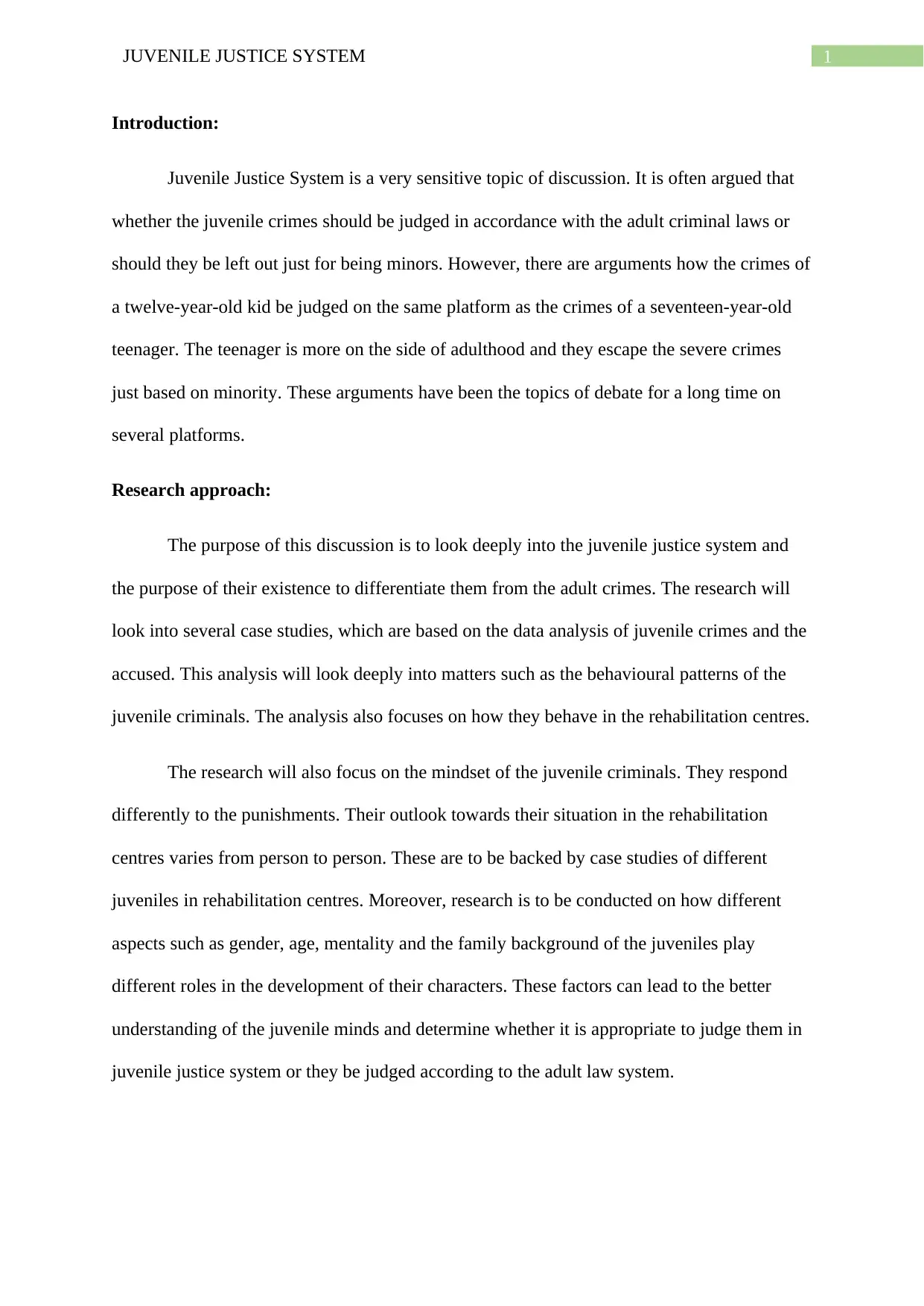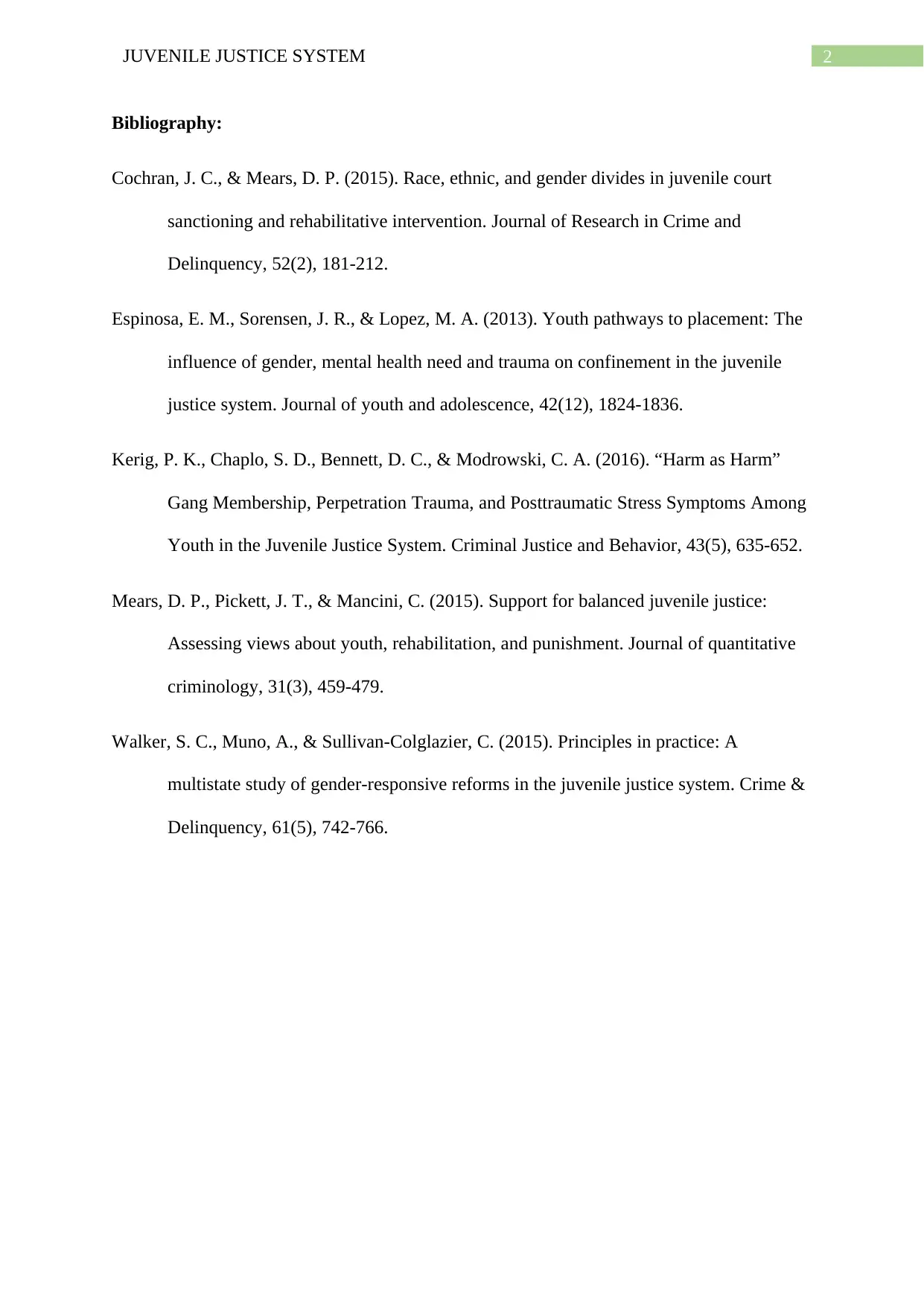COMM 19999 Essay: Juvenile Offenders - Adult Trials and Punishment
VerifiedAdded on 2023/06/09
|3
|594
|417
Essay
AI Summary
This essay explores the contentious issue of whether juvenile offenders should be tried and punished as adults, delving into the nuances of the juvenile justice system. The research examines various aspects of juvenile crime, including behavioral patterns, responses to rehabilitation, and the influence of factors such as age, gender, and family background on the development of juvenile criminals. Through case studies and data analysis, the essay investigates the appropriateness of applying adult criminal laws to minors, considering the distinct developmental stages and potential for rehabilitation within the juvenile justice framework. The essay aims to provide a comprehensive understanding of the complexities surrounding the treatment of juvenile offenders, supported by cited research and case examples, contributing to the ongoing debate on this important societal issue.
1 out of 3










![[object Object]](/_next/static/media/star-bottom.7253800d.svg)